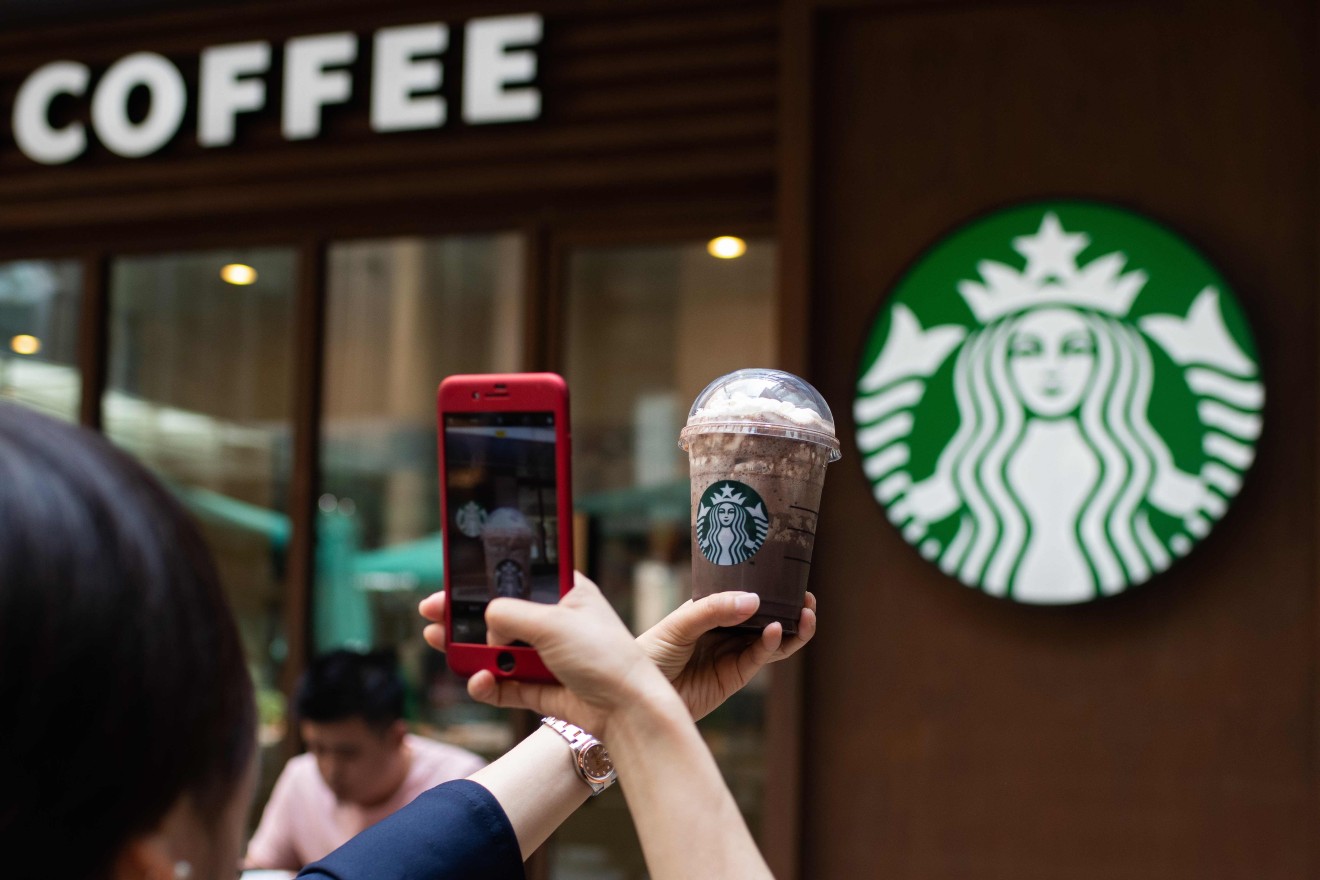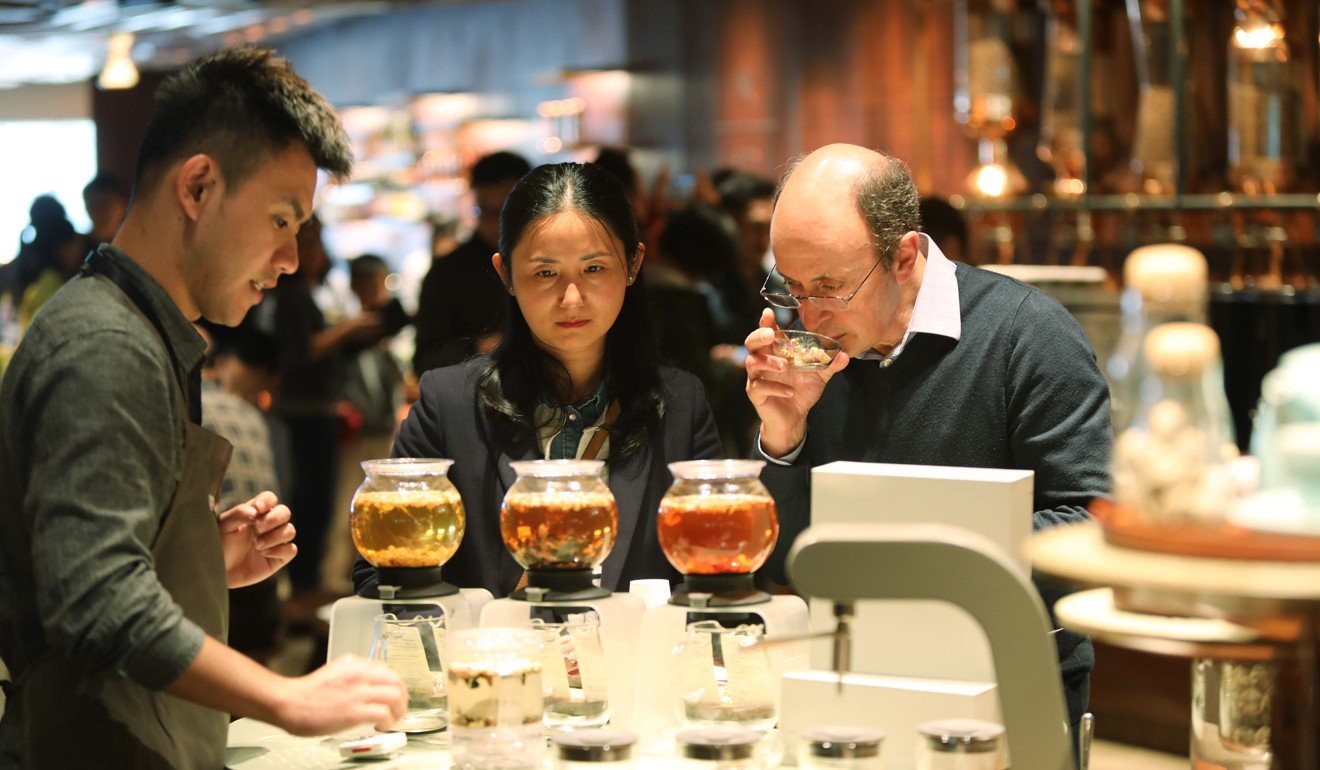People in China could already order Starbucks on Ele.me, but now they don't even have to pick up their phone
China's consumers now can order Starbucks through Alibaba's smart speaker Tmall Genie and have their deliveries within 30 minutes, the latest example of the popularity of on-demand daily services among the world's biggest internet population.
The two companies announced their collaboration on Wednesday. The orders will be delivered by Alibaba's food delivery platform Ele.me. A special Starbucks edition of Tmall Genie sold over 10,000 pieces at a price of 199 yuan on Taobao, the ecommerce platform.

"We're excited to introduce an even more diverse and enriched experience on our platform through Starbucks voice ordering and provide a direct benefit to Chinese consumers within their daily routine," said Miffy Chen, general manager at Alibaba A.I. Labs, which leads the development of Tmall Genie, in a statement.
Through Alibaba's Tmall Genie, customers place an order using their voice and can track their order in real-time within the 30-minute delivery time frame. Members will soon be able to receive personalized recommendations when using voice commands to place orders that are tailored to previous order preferences and popular items from Starbucks seasonal menu.
Starbucks fans in China can also listen to the latest Starbucks in-store playlists through Alibaba's music streaming app, Xiami Music.

"We are focused on ensuring that Starbucks voice ordering is truly personal," said Molly Liu, vice-president and general manager, Digital Ventures, Starbucks China. "We look forward to offering our customers more convenient moments and new opportunities to engage with Starbucks on a single integrated platform as they move throughout the day."
Tech giants like Alibaba, Tencent and Baidu are competing to place more smart speakers in offices and homes as computing moves away from smartphones to voice-activated digital assistants.
"Throughout this year we expect Alibaba and Baidu will continue to spend in exchange for more users, given that scaling-up has become their top priority over monetization," said Nicole Peng, the vice-president of mobility at Canalys said in a statement. "It's great for mass market education and fast consumer adoption, as consumers are paying very little for a device and the countless content and services."
The global smart speaker market increased 55.4 per cent in the second quarter of 2019 to reach 26.1 million units, according to Canalys, a technology market analysis firm. China has overtaken the US as the fastest growing smart speaker market, with Baidu replacing Google to become the world's second-largest smart speaker vendor after Amazon, according to the report.
There are over 30,000 paid items available through Baidu's Xiaodu speakers, including the Meituan-Dianping food delivery app, according to Jing Kun, Baidu's vice-president and general manager of its smart living group.
Alibaba is the parent company of the South China Morning Post.
(Abacus is a unit of the South China Morning Post.)
For more on China tech visit abacusnews.com or subscribe to our newsletter via abacusnews.com/newsletter for the latest China tech news, reviews and product launches.
Copyright (c) 2019. South China Morning Post Publishers Ltd. All rights reserved.







